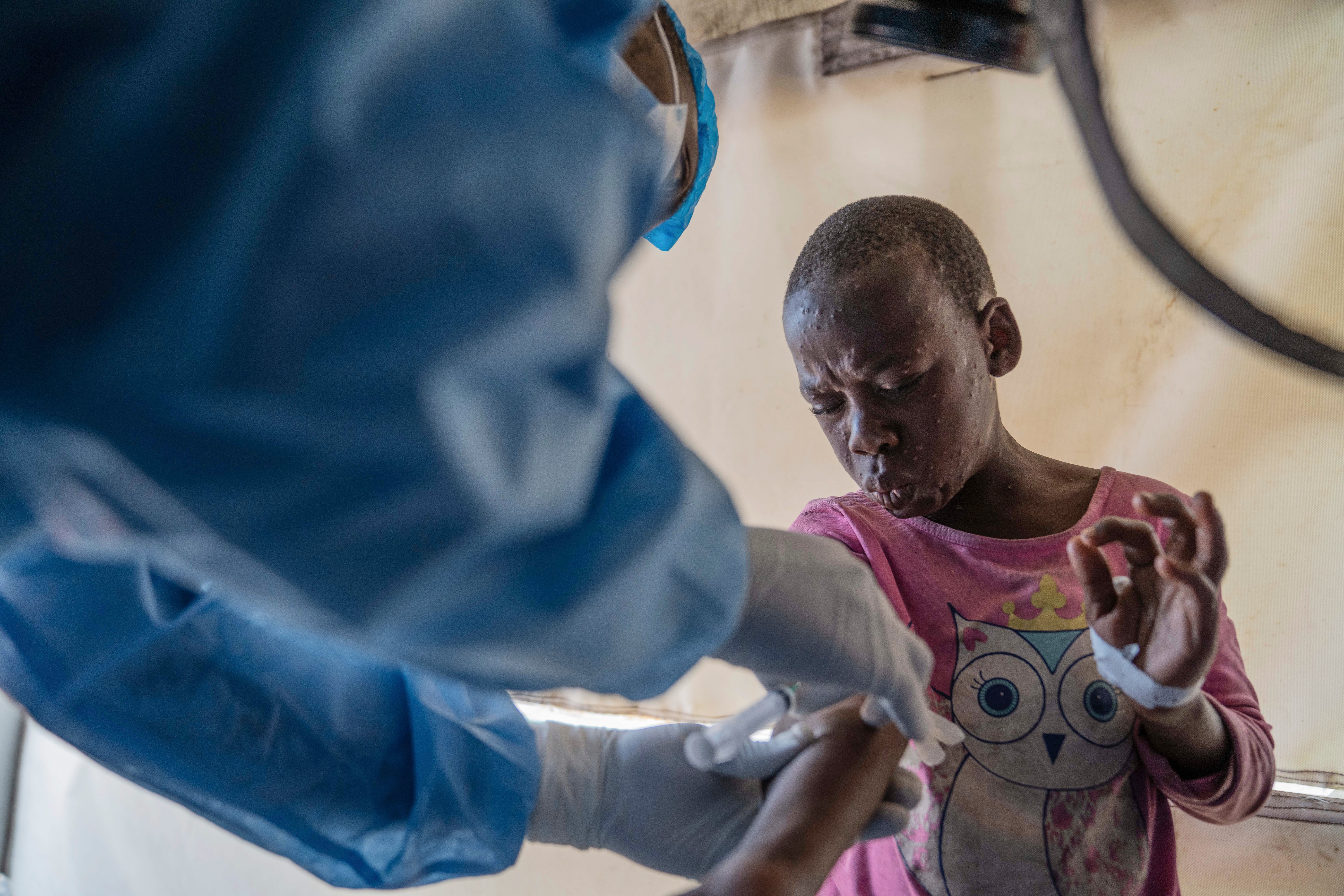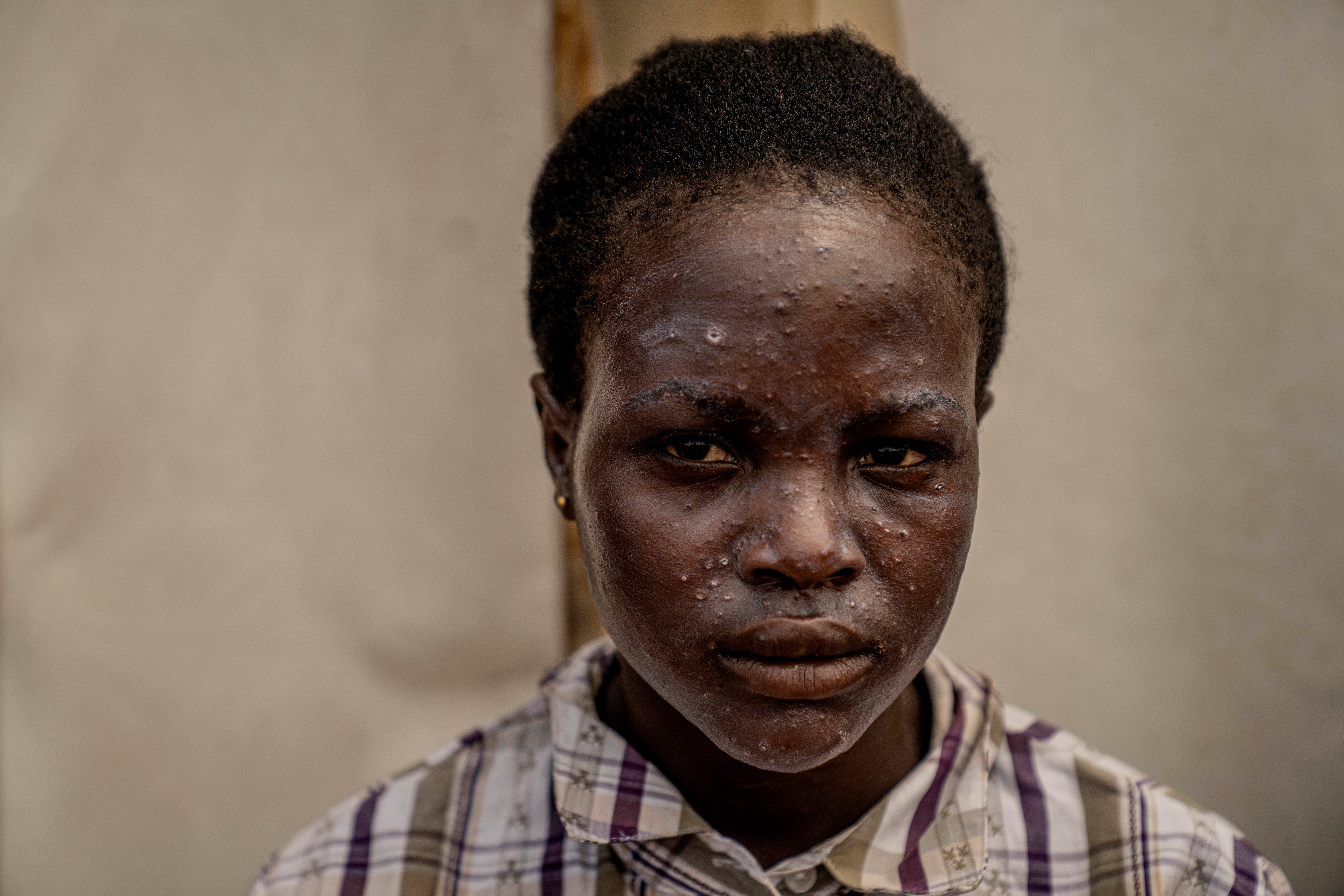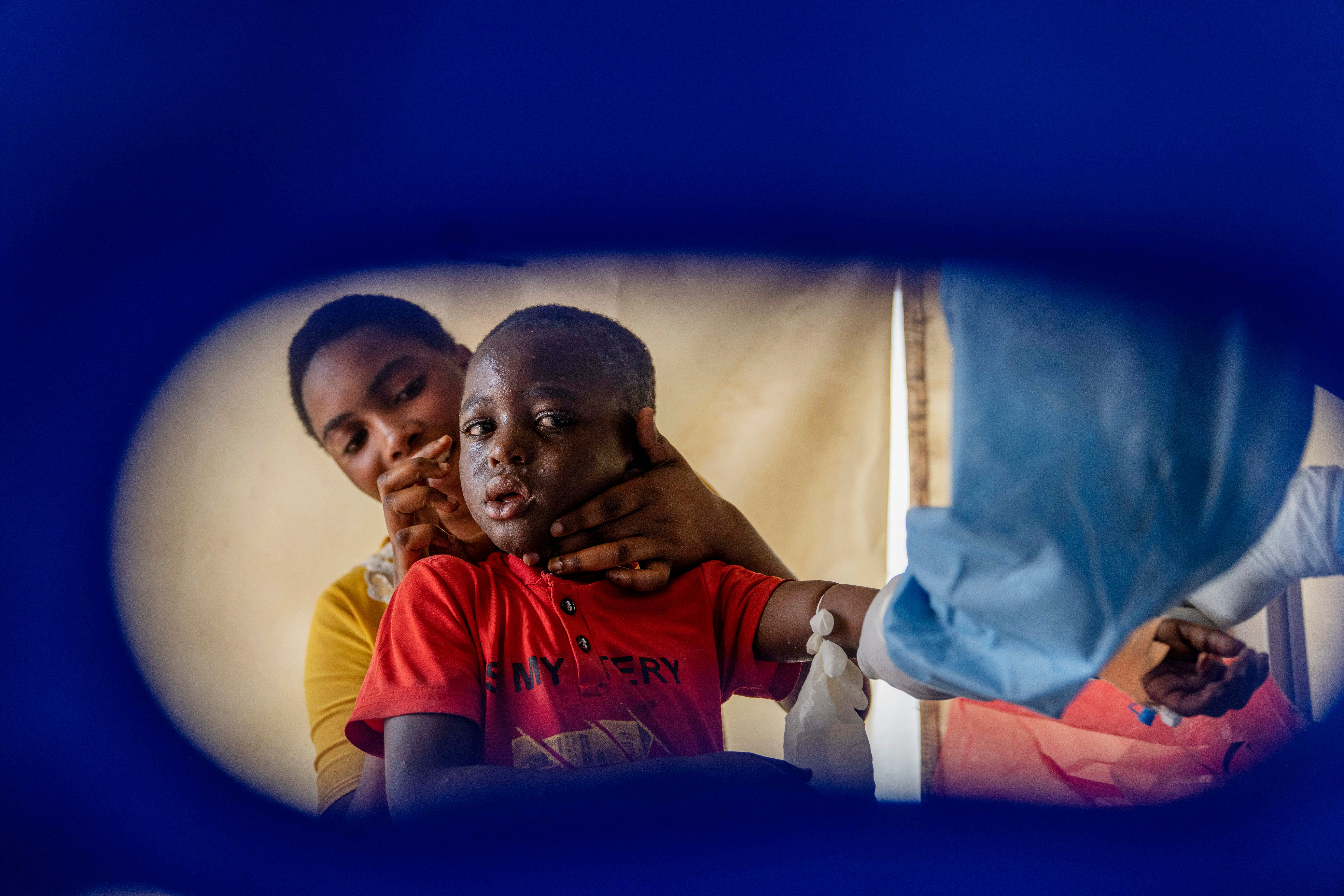Congo reports more than 1,000 new mpox cases in a week
The European Centre for Disease Prevention and Control issued advice to travelers to mpox-affected areas

Congo reported more than 1,000 new mpox cases in the last week up to Tuesday as African health authorities asked for desperately needed vaccines to help fight its “growing” threat on the continent.
The World Health Organization has declared the outbreaks in Africa a global emergency.
Mpox belongs to the same family of viruses as smallpox but causes milder symptoms like fever, chills and body aches, and mostly spreads through close skin-to-skin contact, including sexual intercourse. People with more serious cases can develop lesions on the face, hands, chest and genitals.
The European Centre for Disease Prevention and Control recommended last week that travelers to mpox-affected areas see if they might be eligible to get vaccinated, in a move that could increase pressure to secure mpox shots.
While mpox has been reported in 12 of Africa’s 54 countries during these outbreaks, the vast central African nation of Congo has recorded by far the most cases this year. Out of a total of 18,910 cases in 2024, 94% — or 17,794 — were in Congo, the Africa Centers for Disease Control and Prevention said, with 535 of the 541 deaths reported.
The figures are likely an underestimate, as only about one in five suspected cases in Congo are being tested for mpox. Africa CDC director-general Dr. Jean Kaseya said many affected African countries had limited testing and surveillance capabilities.
Over the last seven days, Congo recorded 1,030 of the 1,405 new cases in Africa according to statistics provided late Tuesday by the Africa CDC. Only 16% of the cases have been confirmed by virus tests, but the infections meet the agency’s definition of the disease.
The rising mpox case count in Africa and a new form of the virus identified in Congo that might be more easily transmitted led the WHO to declare it a global health emergency last week. Some hope this will encourage donors to share vaccines and other help to curtail the outbreaks in Africa before cases spread internationally as Sweden recorded a case of the new mpox variant first seen in eastern Congo.
The WHO has previously said its past efforts to raise donations for mpox failed to elicit even a single donor dollar.

Africa CDC's Kaseya said that his organization had received a pledge of 215,000 mpox vaccines from the European Union and the vaccine maker, Bavarian Nordic, which were due to arrive in the next few days. The United States' aid agency said it had donated 50,000 other doses of the same vaccine to Congo. Japan has also donated some doses to Congo.
But Africa likely needs much more. Congo's health minister said his country alone needed 3 million vaccine doses to end the outbreaks there, which have spilled into at least four nearby African countries.
A 2022 global mpox outbreak in more than 70 countries was shut down in the space of months with vaccines and treatments made available in rich nations, but hardly any doses reached Africa. It had been spreading largely unnoticed for years in Nigeria and elsewhere before it sparked international concern. Since then, the virus has continued to steadily sicken people in Congo, with few effective containment efforts.
South African President Cyril Ramaphosa criticized the global response to the 2022 outbreak, calling it unfair as treatments and vaccines were made available to rich Western nations while Africa was given little support. In a statement, he urged the international community to guarantee “equitable access” to mpox diagnostics and vaccines this time.
Ramaphosa’s comments evoked memories of Africa’s anger at largely being shut out of vaccines during the COVID-19 pandemic. Then, Africa received doses much later than richer countries and had to pay more in some cases.

Kaseya said mpox was now “growing and spreading” while countries waited for doses. While Congo was clearly the country causing the most concern, he said it was noticeable that cases in nearby Burundi had more than doubled to 572 in a week.
Kaseya also asked for "solidarity" from the international community in dealing with mpox and specifically urged against any COVID-like travel bans being placed on African countries that would isolate them as the disease is not as easily transmissible.
“Don’t punish Africa,” he said. “We need you to provide appropriate support. This vaccine is expensive."
Subscribe to Independent Premium to bookmark this article
Want to bookmark your favourite articles and stories to read or reference later? Start your Independent Premium subscription today.
